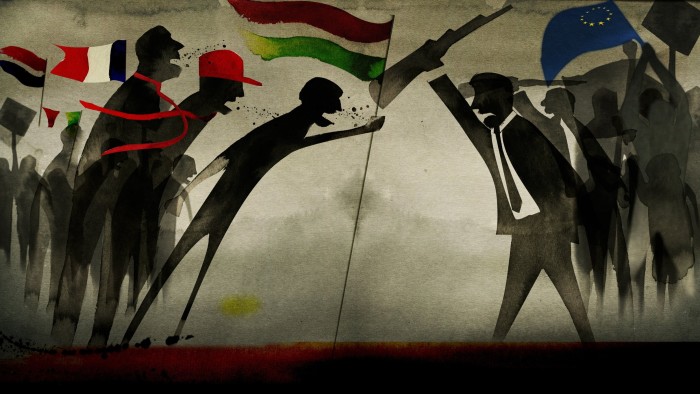Unlock the White House Watch newsletter for free
Your guide to what Trump’s second term means for Washington, business and the world
The writer is an FT contributing editor, chair of the Centre for Liberal Strategies, and fellow at IWM Vienna
A century ago, Mao Zedong pointedly asked, “Who are our enemies? Who are our friends? This is a question of the first importance for the revolution.” Today, a revolutionary of a different ideological stripe, Kevin Roberts, president of the Trump-aligned Heritage Foundation, argues “we are in the process of a second American revolution”. It’s an upheaval that has inspired an outbreak of political cross-dressing among cosmopolitan liberals and far-right nationalists alike on the old continent. Trump’s second coming has changed America’s understanding of whom to count as friends — and foes — in Europe. Top US politicians now amicably consort with European far-right leaders while treating the continent’s proponents of liberal democracy as enemies. In response, many Europeans have begun to view America as a threat.
As the latest European Council on Foreign Relations (ECFR) survey reveals, although a majority of Europeans believe that Trump is bad for America, for their own country, and for world peace, most supporters of Europe’s far right have fully signed on to Trump’s revolution. They claim the US political system is doing its job while Europe’s is broken.
The relationship between far-right European parties and Trump may come to resemble the West European communist parties and the Soviet Union during the cold war, whereby the far right feels obliged to defend Trump as well as to imitate him. Enchanted with what is happening in the US, European Trumpists dream of mass deportations of migrants but they are mostly muted when it comes to Trump’s trade war on Europe.
But what exactly can Europe’s right achieve by parroting Trump, and what do European liberals gain from opposing him? The union between European nationalists and Trump’s Maga movement is hardly a marriage made in heaven. While leaders like Viktor Orbán in Hungary seem thrilled to have the US on their side, their respective nationalisms have little in common. In the offices of far-right leaders across the old continent one finds antiquated maps, displaying their nations with the expansive borders of a bygone era; in Trump’s office one finds seemingly airbrushed family photos. European nationalists are devoted to History with a capital H; the US president is devoted to Trump with a capital T.
Trump’s nationalism is a nationalism without history. When he refers to his predecessors, it is to express that he is better than them. When he talks about making Gaza a five-star resort he speaks like a real estate mogul for whom nations are only tenants of their lands. For Europe’s blood-and-soil nationalists, God has given every piece of the continent’s territory to white Europeans and their descendants. Traditionally, the parties of the European far right have imagined themselves as defenders of national sovereignty and national tradition against the citizens of nowhere in Brussels. Nowadays, they are recasting themselves as part of a transnational revolutionary movement, espousing the rhetoric of fundamentalist Christianity and civilisational conflict that wins votes in America but won’t necessarily fly in Europe.
European liberals have also remade themselves. They are now seeking to cast themselves not as Davos-style globalists, but as defenders of the national interest against US interference. Mark Carney’s victory in Canada, riding a wave of patriotic pique, has inspired EU leaders undergoing an identity crisis to believe that resisting Trump is the best way to get re-elected. But it won’t work everywhere. Only when Trump plays the irredentist card, as he did in Canada, can liberal leaders rely on mass mobilisation. Danes today, because of Trump’s fantastical threat to seize Greenland, have become the most anti-Trump Europeans, but the Carney effect is not present elsewhere in the EU. Trump may be a duplicitous partner but most Europeans are ready to live with him because they’re sceptical about the EU’s capabilities to defend itself. Like a couple married for decades, they cannot imagine living alone.
The “Trump effect” on EU politics is as unpredictable as Trump himself. After Brexit, the European far right was similarly charmed by Brexiters’ “take back control” nationalism. Many Eurosceptics demanded referendums on leaving the EU. But Brexit soon became a liability and parroting the Brits was no longer in vogue. So, who gains and who loses from the “second American revolution” will depend not only on Trump’s failures and successes at home, but also on European leaders’ abilities to use the Trumpian moment to craft new political identities for themselves.







